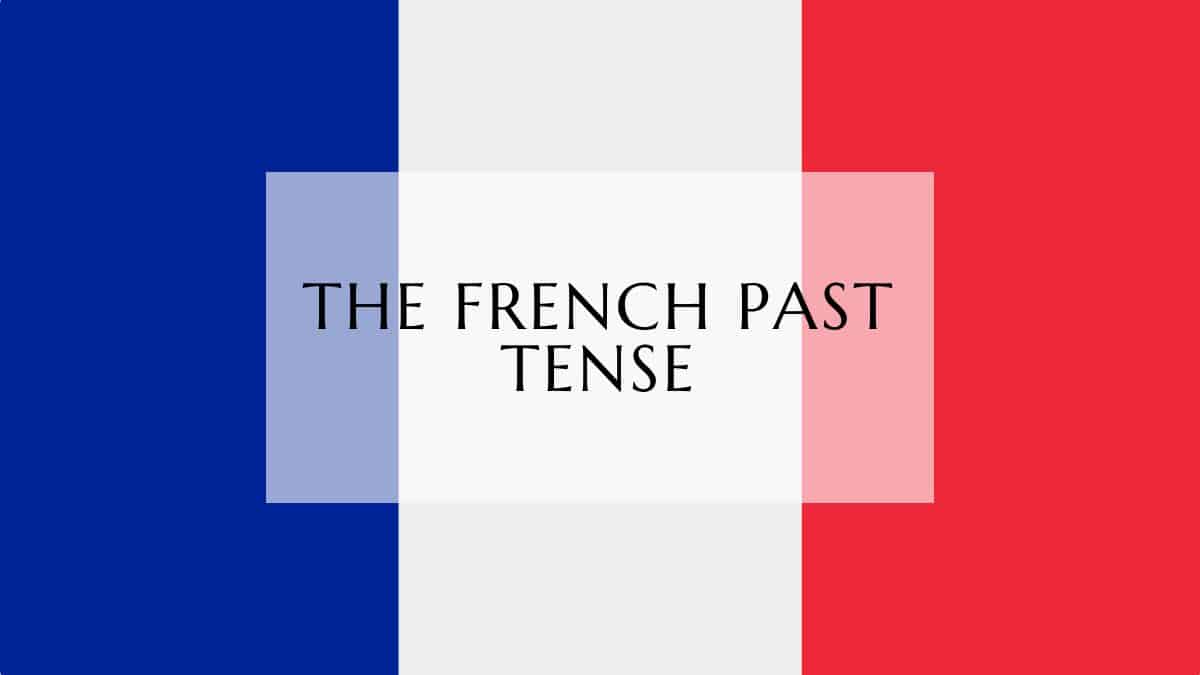The French past tense (le passé composé) is used to express an action that was completed in the past, and it’s also used to express something that was true in the past. in this lesson we will talk about the form of the French Passé composé, the auxiliary verbs and where to use them, let’s get started.

French Past Tense
The French Past Tense Form
Let’s look at the following sentence in both French and English:
| I have visited Nador | J‘ai visité Nador |
“ai” is the conjugation of the verb “avoir” in the present tense (first person singular je) and “visité” is the past participle of the verb “visiter“, and Nador? it’s where I live lol
When beginning with an example that put the “rule” into action and also use familiar words (to visit= visiter), thing get easier, your mission now is to absorb the rule through an example, you already got the formula of the passé composé, but here it is again: the auxiliary verb in the present tense + the past participle
I said “auxiliary verb” because there are two: être and avoir, the good news? in most cases we use avoir, later in this post, we will learn where to use être.
Now look at the conjugation of manger (to eat):
| J’ai mangé |
| Tu as mangé |
| il / elle / on a mangé |
| nous avons mangé |
| vous avez mangé |
| ils / elles ont mangé |
The second piece of the puzzle is the past participle, how do we form it?
The Past Participle
To form the regular past participles for verbs ending with –er, we replace the er with é (visiter – visité, manger – mangé). For verbs ending in –ir, we remove the r (finir – fini, choisir – choisi), and for verbs ending with –re, we replace re with u (répondre – répondu, entendre – entendu)
Some verbs don’t follow the regular pattern so they have irregular past participle, here are some:
| Infinitive | Past Participle |
| avoir (to have) | eu |
| être (to be) | été |
| faire( to do/ make) | fait |
| dire (to say) | dit |
| boire (to drink) | bu |
| voir (to see) | vu |
| lire (to read) | lu |
| prendre (to take) | pris |
Note: you can practice what you’ve learned here, and learn how to pronounce each of the words in our Memrise course here, don’t know how to use the platform or sign up? we’ve got you covered in this easy-to-follow tutorial here.
Le Passé Composé Avec “être”
As we said earlier, most verbs use the passé composé with “avoir” there are a few main verbs that use “être” and some others that are derived from them, these verbs are generally used to refer to a movement or a change of place/condition, the good news again? they are commonly used so you’ll get familiar with them + here are some:
| Infinitive | Past Participle |
| monter (to go up) | monté |
| venir (to come) | venu |
| aller (to go) | allé |
| naître (to be born) | né |
| descendre (to go down) | descendu |
| entrer (to go in/ to enter) | entré |
| retorner (to return) | retourné |
| tomber (to fall) | tombé |
| rester (to stay) | resté |
| arriver (to arrive) | arrivé |
| mourir (to die) | mort |
| partir (to leave) | parti |
| sortir (to go out) | sorti |
Note: when we use the passé composé with être, we have to match the endings of the past participle with the subject, for masculine we keep the same endings, for feminine we add e and es for feminine plural:
| il est sorti |
| elle est sortie |
| ils sont sorti |
| elles sont sorti |
Happy learning
